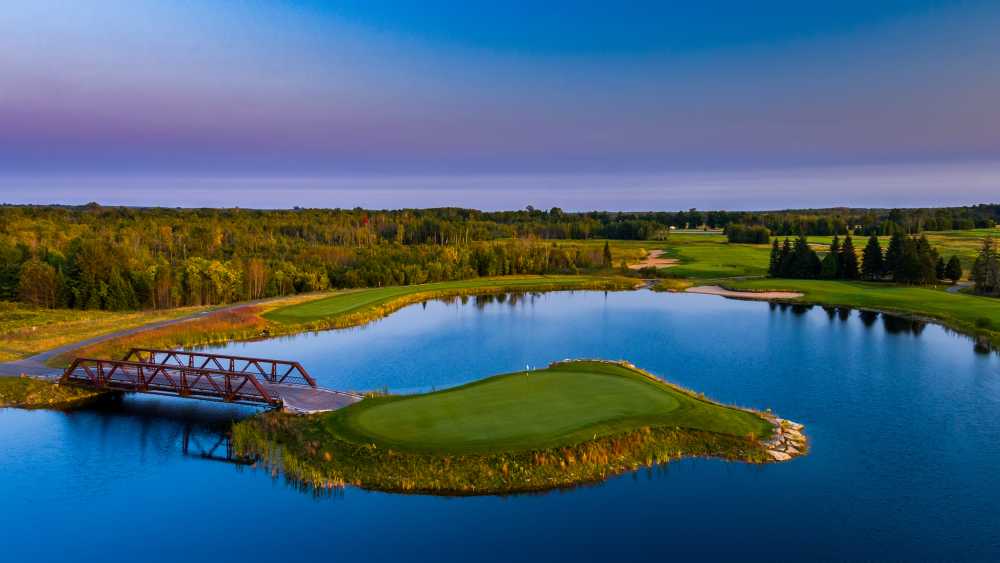
- Details
- By Darren Thompson
On Tuesday, January 25, Sweetgrass Golf Course will be awarded the National Golf Course of the Year by the National Golf Course Owners Association (NGCOA) in Orlando, Florida.
Sweetgrass Golf Course is owned and operated by the Hannahville Indian Community, a federally recognized Potawatomi Indian Tribe, and is part of the tribe’s Island Resort & Casino in Michigan’s Upper Peninsula.
“We were all just speechless,” said Sweetgrass Director of Golf Dave Douglas to the Daily Press. “We are very honored to win that award.”
Want more Native News? Get the free daily newsletter today.
Island Resort & Casino is one of the largest golf, casino, and entertainment resort destinations in the Midwest. According to the Michigan Golf Journal, the Hannahville Indian Community opened the bingo hall in 1981, then expanded to include a casino in 1991. In the late 1990’s, the Tribe expanded the casino, and added a showroom and convention center. The Tribe recently opened a $33 million expansion, which included an 11-story Palm Tower that increased room capacity to 454. The expansion also includes a high-end steakhouse and a family waterpark.
This isn’t the first Tribally-owned golf course’s first award from the NGCOA. Sweetgrass was awarded Michigan’s course of the year for Region 2 last fall by NGCOA, putting it in line for the national award, according to a report by the Daily Press. Club & Resort Business says on its website that the golf course of the year award recognizes a golf course that, “epitomizes exceptional course quality and management excellence, makes important contributions to its communities and the game, and is a model of operations to its peers.”
When the golf course opened, it was recognized as one of “America’s Best New Courses” by Golf Digest in 2009, “Best Casino Courses” by Golfweek in 2009, and continued to win awards over the years including “Michigan Golf Course of the Year 2021” by the Michigan Golf Course Association.
The Native-owned organization Sweetgrass now joins some of America’s most prestigious golf courses.
More Stories Like This
Native News Weekly (August 25, 2024): D.C. BriefsNext on Native Bidaské: Leonard Peltier Reflects on His First Year After Prison
Deb Haaland Rolls Out Affordability Agenda in Albuquerque
Boys & Girls Clubs and BIE MOU Signing at National Days of Advocacy
National Congress of American Indians Mourns the Passing of Former Executive Director JoAnn K. Chase
Help us defend tribal sovereignty.
At Native News Online, our mission is rooted in telling the stories that strengthen sovereignty and uplift Indigenous voices — not just at year’s end, but every single day.
Because of your generosity last year, we were able to keep our reporters on the ground in tribal communities, at national gatherings and in the halls of Congress — covering the issues that matter most to Indian Country: sovereignty, culture, education, health and economic opportunity.
That support sustained us through a tough year in 2025. Now, as we look to the year ahead, we need your help right now to ensure warrior journalism remains strong — reporting that defends tribal sovereignty, amplifies Native truth, and holds power accountable.
 The stakes couldn't be higher. Your support keeps Native voices heard, Native stories told and Native sovereignty defended.
The stakes couldn't be higher. Your support keeps Native voices heard, Native stories told and Native sovereignty defended.
Stand with Warrior Journalism today.
Levi Rickert (Potawatomi), Editor & Publisher
